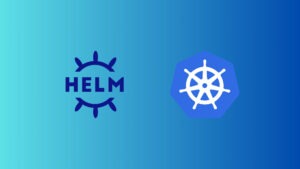Green Data Centers – How to Choose an Eco-Friendly IT Partner?
A Guide for Companies Looking for IT Providers Using Energy-Efficient Infrastructure and Renewable Energy
 Author:
Author:In the latest Gartner report (“Software Buying in 2023: 5 Trends Reshaping the Purchase Journey”), we can learn, among others, that many software buyers increasingly decide to replace, modify or adapt the currently used IT technology (e.g. software). When making such a strategic decision, it is worth answering at least the following three questions.
How to prepare for the replacement of the current solution with a new IT technology?
Each of the technologies, as we showed in the article [Trajectories of technological development], is at a certain stage of its development. When considering the transfer of a given IT technology to the enterprise, we should take into account its readiness and the company’s ability to absorb it, i.e. implement it. A company’s ability to absorb technology is its ability to adapt available IT technologies to increase the competitiveness and productivity of a given enterprise. We write more about it [here].
When planning a project consisting in the exchange of IT technologies, it is necessary to build a scope and plan for such an implementation project. The choice of a specific implementation scenario should be preceded by an analysis and assessment of the company’s technological needs. We wrote about strategic planning and general principles of IT technology selection in companies [here].
Where to look for new IT technologies?
We can look for IT technologies:
You can read more about the advantages and disadvantages of individual technology sources in our article entitled [Sources of IT technologies].
What are the risks and opportunities associated with the exchange of IT technologies?
When replacing one IT technology with another, a number of different risks must be taken into account. These are the following risks (after M. Wirkus):
Technology exchange is not only a risk but an opportunity for our enterprise. New technology may mean reduction of its maintenance costs and/or faster implementation of new changes adapting processes to the requirements of the market game.
Every risk and opportunity can be managed – we write about it in more detail in the article entitled [Main challenges and risks of IT projects].
As the INNOKREA team, we have participated many times in the project of taking over responsibility for the development of software originally made by a third party. Our client, FIXFM, faced the challenge of changing its technological partner. FIXFM was looking for a partner who would provide appropriate technical competence for further development and maintenance of the application. In cooperation with INNOKREA, a plan was developed to take over responsibility for the production and maintenance of the software so that it would be unscathed for the overall customer support. In a very short time, INNOKREA took over the comprehensive support and development of our client’s mobile and web application. Thanks to the implementation of this project, the client optimized the costs of application maintenance and development. At the same time, they guaranteed themselves a stable partner for technological cooperation.

Green Data Centers – How to Choose an Eco-Friendly IT Partner?
A Guide for Companies Looking for IT Providers Using Energy-Efficient Infrastructure and Renewable Energy
Green IT

Helm for the Second Time – Versioning and Rollbacks for Your Application
We describe how to perform an update and rollback in Helm, how to flexibly overwrite values, and discover what templates are and how they work.
AdministrationInnovation

Helm – How to Simplify Kubernetes Management?
It's worth knowing! What is Helm, how to use it, and how does it make using a Kubernetes cluster easier?
AdministrationInnovation